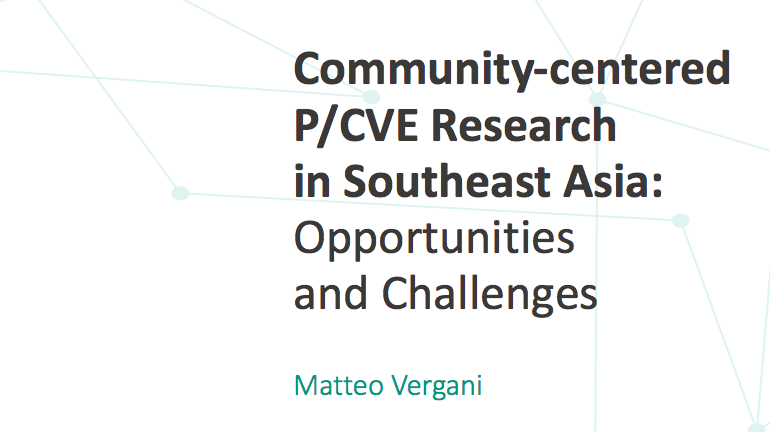Community-centered P/CVE Research in Southeast Asia: Opportunities and Challenges

Abstract
The definition and understanding of community-centered preventing and countering violent extremism (P/CVE) research lacks analytical clarity. This chapter examines this concept with a focus on the Southeast Asian context, reflecting on opportunities, challenges, and pitfalls, to lay the foundation for future theorization and comparative P/CVE research in local contexts. Collaboration with independent and genuine community actors is advantageous for all stakeholders, since deficient trust, tamed and crystallized relationships, and a lack of resources and capacities can result in biased research findings. The chapter advocates for the establishment of research and evaluation frameworks in National Action Plans, with the aim to set out common definitions, measurement tools, and methodologies in consultation with all stakeholders, including community actors. This is a necessary step in producing systematic, cumulative, and comparative research and evaluation findings that hold true across local contexts. Finally, the chapter discusses the ethical implications of conducting community-centered P/CVE research with minority communities––such as the creation of suspicious, ostracized, and alienated communities––as well as with majority communities. It also speaks to the potential for research findings and topics of focus interfering in or being instrumentalized to impact a country’s democratic process. Although the Southeast Asian context is used to discuss the opportunities and challenges of the different approaches to community-centered P/CVE research, key findings are likely relevant to other contexts.
Suggested citation:
Vergani, Matteo. Community-centered P/CVE Research in Southeast Asia: Opportunities and Challenges. Washington, D.C.: RESOLVE Network, 2021. https://doi.org/10.37805/rve2021.1.